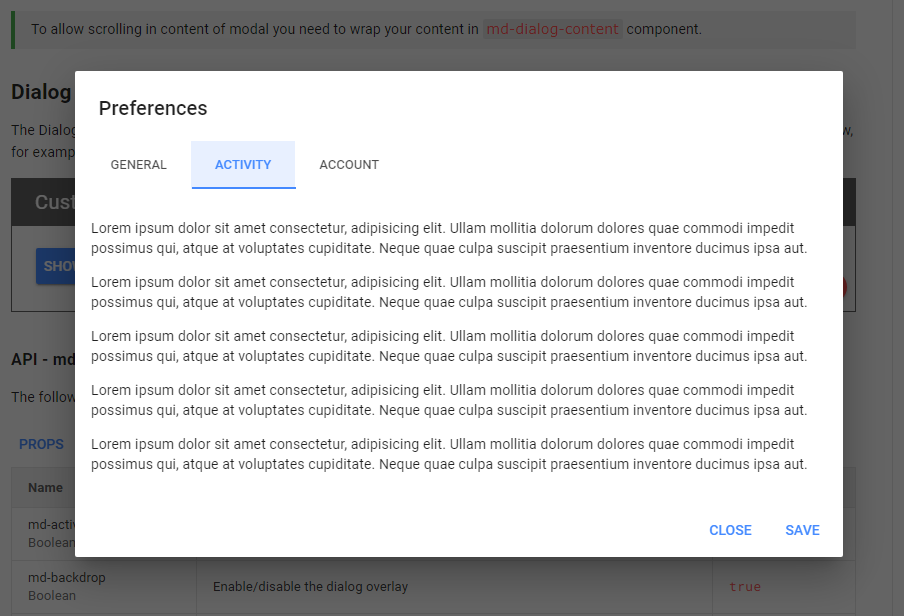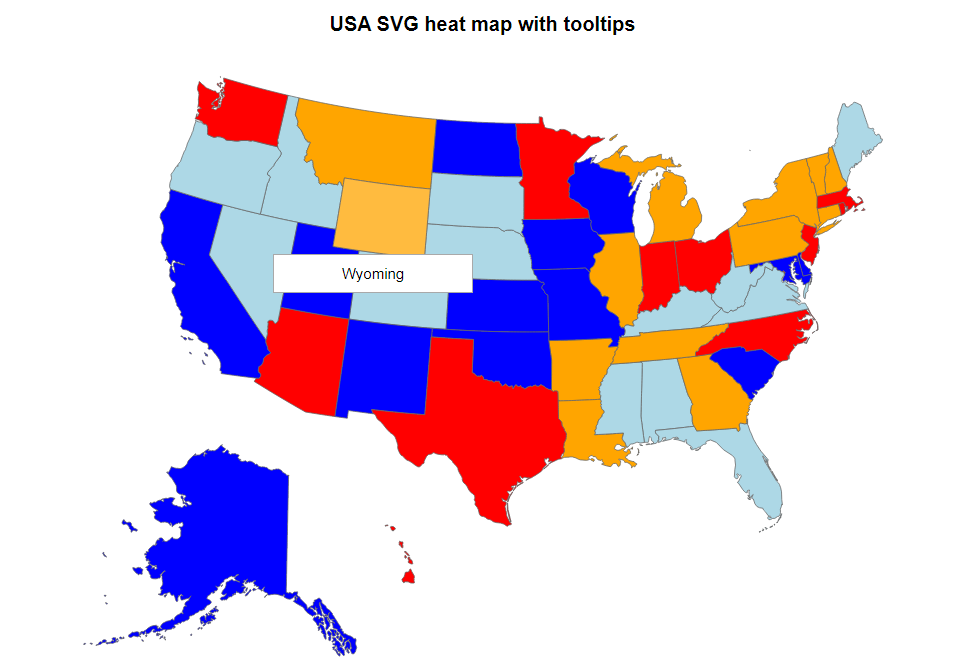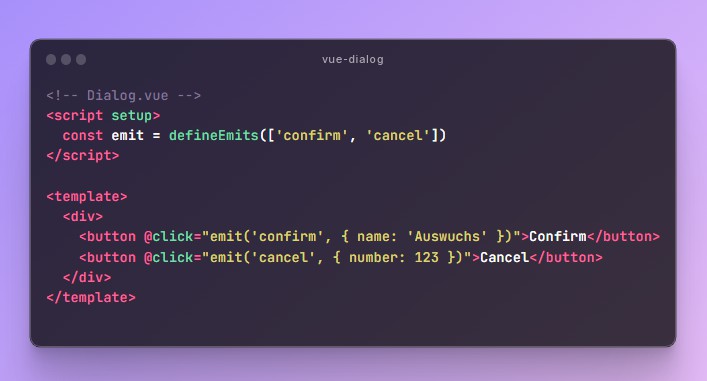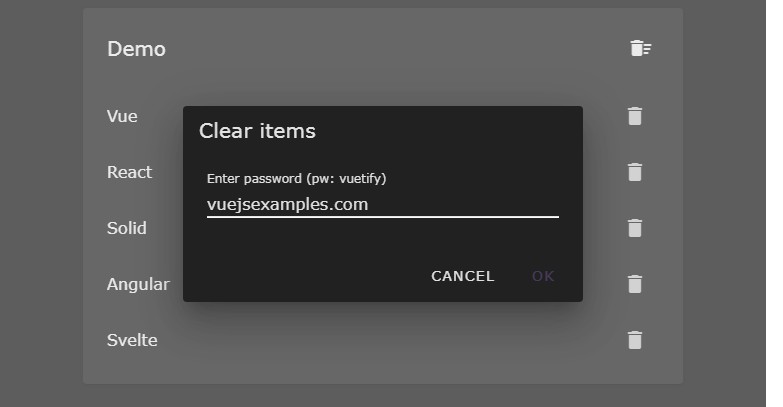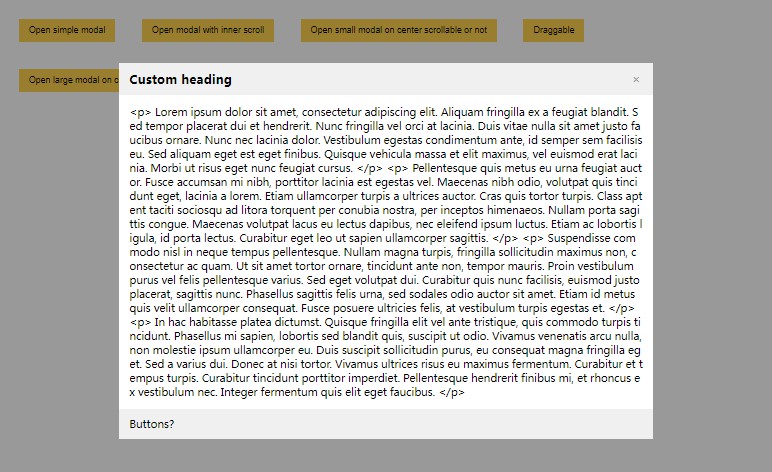vue-material-modal-dialog
A reusable modal dialog for Vue Material.
Purpose
In Vue Material, components showing a dialog have to contain an MdDialog, or a component based on an MdDialog.
There will be a separate dialog instance nested in each such component, even if different components use the same dialog or if components are repeated by v-for.
This repository provides a new component, MdModalDialog, as a substitute for Vue Material's MdDialog. It offers the following features:
- For each dialog there is only a single instance, no matter how many components use it
MdModalDialogsupports the same props and events asMdDialog- Simple API: showing the dialog returns a promise which will be fulfilled or rejected
when the dialog is closed - Custom properties can be passed to a dialog
Usage
Installation
npm install vue-material-modal-dialog
yarn add vue-material-modal-dialog
Registering MdModalDialog
import MdModalDialog from 'vue-material-modal-dialog'
import 'vue-material-modal-dialog/dist/md-modal-dialog.css'
...
// This must come after Vue.use(VueMaterial):
Vue.use(MdModalDialog)
Controlling modal dialogs
MdModalDialog provides these functions:
-
vm.$modal.show(dialog, [props]){Vue component} dialog{Object} [props]
Shows a dialog component, can pass properties to the dialog instance.
Returns a
Promisethat can be fulfilled byvm.$modal.submit()and
rejected byvm.$modal.cancel(). Both functions close the dialog. -
vm.$modal.submit([result]){Any} [result]
Closes the dialog and fulfills the
Promise; can return a result. -
vm.$modal.cancel([reason]){Any} [reason]
Closes the dialog and rejects the
Promise; can return a reason.
Creating modal dialog components
Just use MdModalDialog in the same way as MdDialog (without md-active),
for example for an input dialog:
<template>
<md-modal-dialog>
<md-dialog-title>Guess a number</md-dialog-title>
<md-dialog-content>
<md-field>
<label>A number</label>
<md-input type="number" v-model="number" />
</md-field>
</md-dialog-content>
<md-dialog-actions>
<md-button @click="$modal.submit(number)">Submit</md-button>
<md-button @click="$modal.cancel()">Cancel</md-button>
</md-dialog-actions>
</md-modal-dialog>
</template>
<script>
export default {
name: 'GuessDialog',
...
}
</script>
Some other component will show GuessDialog and receive the guessed number:
<template>
...
<md-button @click="guess">Guess a number</md-button>
...
</template>
<script>
import GuessDialog from '@/components/guess-dialog'
export default {
...
methods: {
guess() {
this.$modal
.show(GuessDialog)
.then(number => {
// Do something with the guessed number
})
.catch(reason => {
// Must be specified even if the reason is
// irrelevant in order to avoid runtime warnings.
})
}
},
}
</script>
Passing properties to modal dialogs
Let's extend the example with an upper limit to the guessed number.
Use v-slot to make GuessDialog accept property max:
<template>
<md-modal-dialog v-slot="{ max }">
<md-dialog-title>Guess a number up to {{ max }}</md-dialog-title>
<md-dialog-content>
<md-field>
<label>A number</label>
<md-input type="number" v-model="number" :max="max" />
</md-field>
</md-dialog-content>
...
</template>
...
Elsewhere, show GuessDialog and pass a value for max:
this.$modal.show(GuessDialog, { max: 42 })
...
